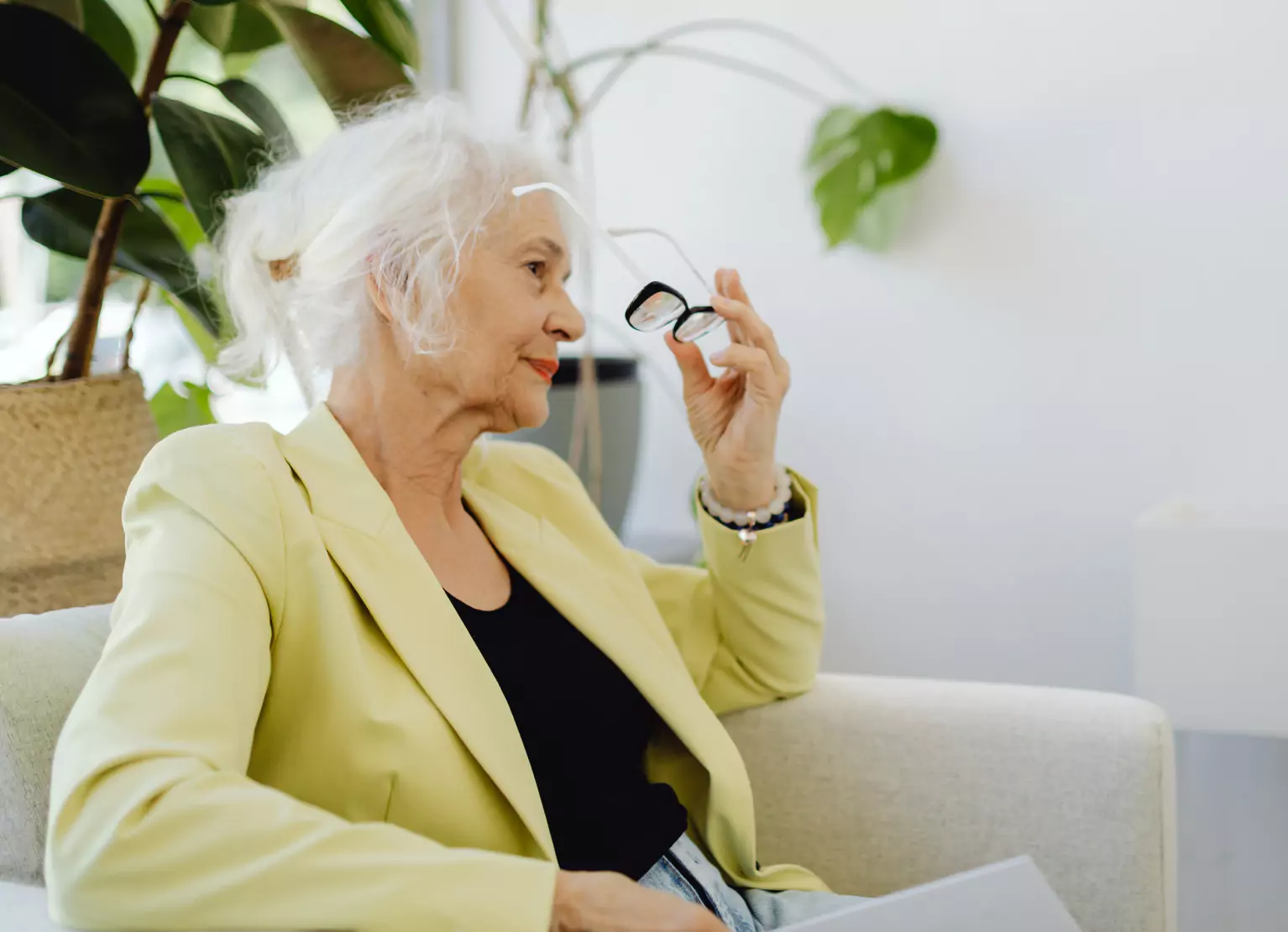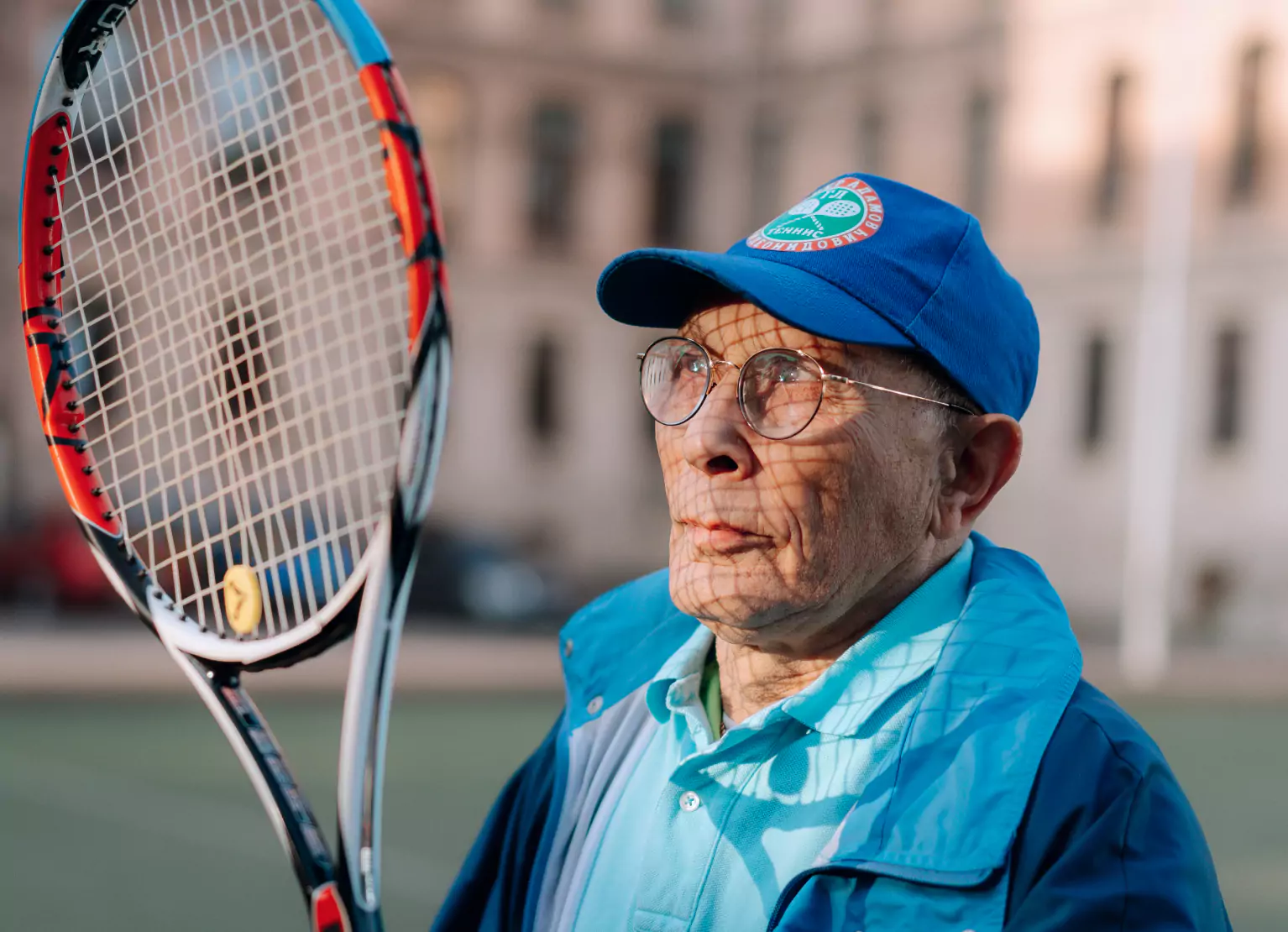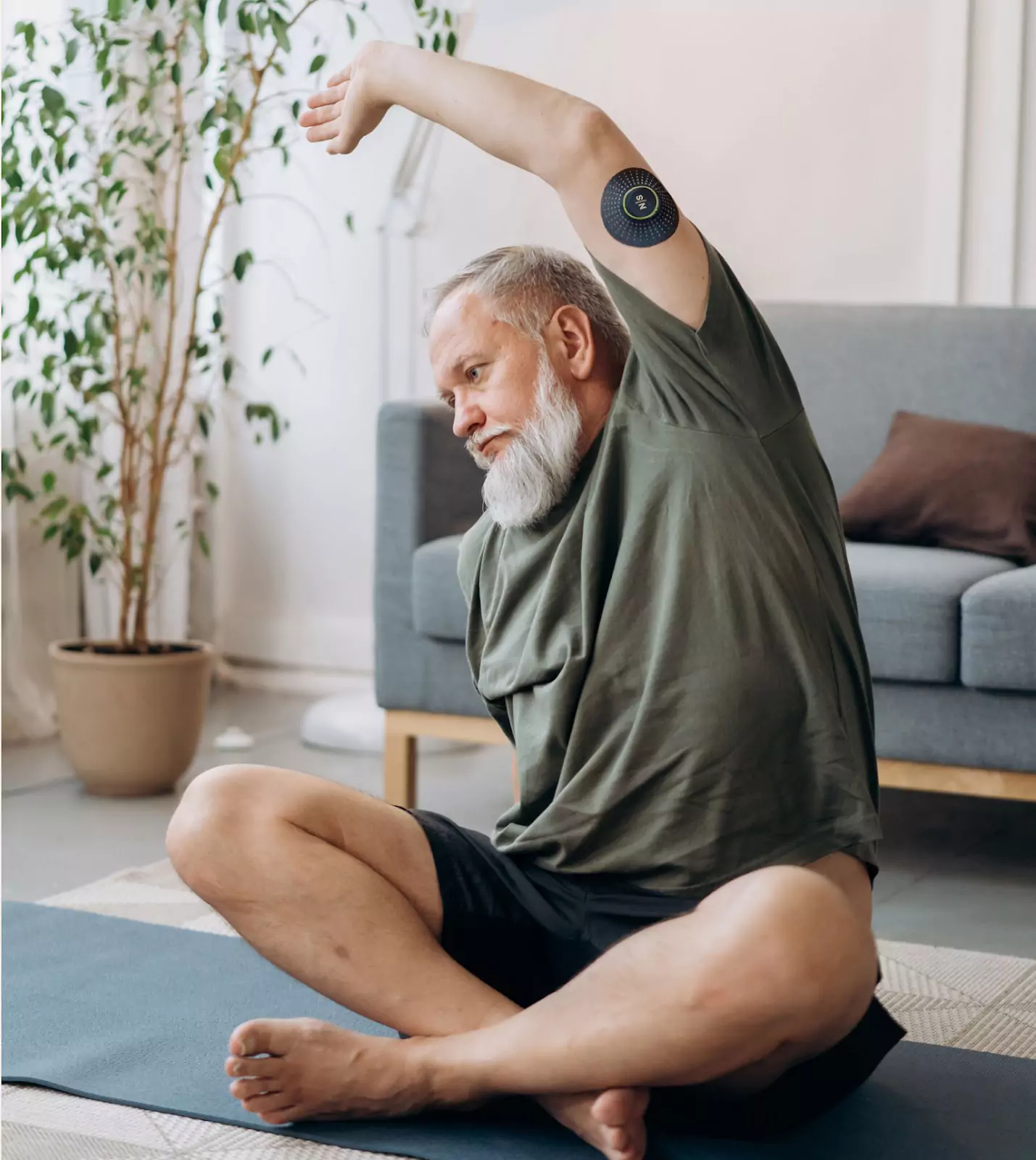Aging and Balance: Why Older People Experience Loss of Balance

Key Takeaways
Balance may be something most of us take for granted, but did you know that as you age you may experience some changes in your ability to balance?
These changes can include difficulty remaining upright and steady, difficulty walking on uneven surfaces, vertigo, and even faintness. Approximately one in five elderly people experience difficulties with dizziness or balance, and falling is the leading cause of injury in people aged 65 and older.
Problems with balance can have a huge impact on both your physical health and your mental health, as balance disorders can interfere with your ability to exercise, socialize, and get from place to place.
Read on to find out what causes issues with balance as you age, and what can be done to prevent or treat this unfortunate occurrence.
How Does Balance Work?

Many systems in your body must work together for you to achieve proper balance.
Your eyes, muscles, joints, and the vestibular system in your inner ear all contribute to your ability to remain upright, see clearly while your body is in motion, and make automatic adjustments to your posture to keep your body upright and stable.
When your brain processes this sensory information, it sends out messages to the muscles that control your eyes, head, neck, trunk, torso, and legs. These messages allow you to maintain balance.
Why Does Balance Decline With Age?
Our bodies change significantly as we age, putting us at higher risk of certain health conditions.
Because all of the key components of our body's complex balance system, our eyesight, our brain’s ability to respond to sensory commands and send messages to the rest of our body, and our strength all start to decline as our bodies go through their natural aging process. As we age, we are also more prone to diseases that can leave us with balance-related issues, which is why this can be a normal and natural part of getting older for many people.
Other Causes of Balance Disorders

Because of the natural degeneration of components of our balance system, our natural aging process can cause problems with balance. However, this is not the only cause of balance disorders, nor is it exclusively elderly people that experience balance disorders.
In fact, there are a range of conditions and disorders that cause balance issues and affect people of all ages.
Here are some other possible causes of balance-related symptoms like vertigo, dizziness, loss of balance or unsteadiness, or feeling faint or lightheaded.
Low Blood Sugar
In cases of low blood sugar, or hypoglycemia, which can occur as a result of certain lifestyle factors or in individuals with diabetes, you may experience possible symptoms of dizziness or lightheadedness. Confusion and nervousness can also occur as a result of low blood sugar.
Benign Paroxysmal Positional Vertigo (BPPV)
BPPV occurs when the calcium crystals from your inner ear that help control balance are dislodged and move to a different part of the ear. This is the most common cause of feelings of vertigo in adults.
Vestibular Neuritis
Vestibular neuritis is a disorder that may be caused by a virus or an infection in the body, and affects the nerves in your inner ear, leading to balance-related issues.
Migraines
Migraines can cause feelings of dizziness and sensitivity to light. Migraines are also associated with motion sickness, which can cause feelings of dizziness when you are in cars, airplanes, or boats.
Concussion or Other Head Injuries
A concussion, or head injury, can cause vertigo, dizziness, and other balance-related issues.
Ramsay Hunt Syndrome
Ramsay Hunt syndrome, also known as herpes zoster oticus, is a shingles-like infection that affects the nerves in your ears. It can cause vertigo, ear pain, hearing loss, and facial weakness.
Cardiovascular Disease
Cardiovascular diseases like abnormal heart rhythms, blocked blood vessels, and a thickened heart muscle can reduce blood flow and cause lightheadedness.
Medications
Loss of balance and lightheadedness can be a side effect of certain medications.
Neurological Conditions
Some neurological conditions, like Parkinson’s disease, can cause balance-related issues.
Symptoms of Balance Disorders
Symptoms of balance disorder can include any or all of the following. If you are experiencing any of these symptoms, see a doctor to rule out any balance disorders or determine what is causing these sensations.
- Feeling faint or lightheaded
- Loss of balance or unsteadiness
- Vertigo, or a sense that you are spinning
- Falling or feeling like you might fall
- Dizziness
- Vision changes, like blurriness
- Confusion
Coping With and Managing Balance Issues

Balance issues can affect many common activities and therefore can have a significant impact on your life and your mental health and anxiety.
As we age, the chance that we lose our balance and fall becomes more likely. If you have fallen previously, or know someone who has, you may experience anxiety about falling. This fear of falling can also cause you to reduce physical activity and decrease your participation in regular activities, which can even result in a lower quality of life.
Fear of falling can also result in an increased likelihood of falling, since when you stop participating in your regular physical activities, you can become weaker, thereby increasing your chance of falling.
So, if you have balance issues that are affecting your life, visit your doctor for guidance and next steps to protect both your safety and mental health. Learning how to reduce your risk of falling and making a plan to get help if you do fall due to balance issues may be helpful as well.
Exercises to Maintain Balance

As you age, it is crucial to stay active to maintain both our mental and physical health. Regular physical activity can help you maintain your strength and prevent falls and injuries from balance-related issues. There are even exercises you can do in your own home that will improve your balance and prevent falls.
Weight Shifts
The Mayo Clinic recommends starting with weight shifts:
- Stand with your feet hip-width apart and your weight equally distributed on both legs.
- Shift your weight to your right side, then lift your left foot off the floor.
- Hold the position as long as you can maintain good form, up to 30 seconds.
- Return to the starting position and repeat on the other side. As your balance improves, increase the number of repetitions.
Single Leg Balance
This simple exercise involves standing on one leg to train your balance:
- Stand with your feet hip-width apart and your weight equally distributed on both legs. Place your hands on your hips. Lift your left leg off the floor and bend it back at the knee.
- Hold the position as long as you can maintain good form, up to 30 seconds.
- Return to the starting position and repeat on the other side. As your balance improves, increase the number of repetitions.
- For variety, reach out with your foot as far as possible without touching the floor.
- For an added challenge, balance on one leg while standing on a pillow or other unstable surface.
Sit-to-Stand Exercise
According to Johns Hopkins Medicine, this sit-to-stand exercise helps build leg strength and improve balance:
- Sit on a sturdy chair of standard height, with a sturdy support surface in front of you, such as a countertop, so that you can reach it for support if needed. Make sure your buttocks are positioned at the front of the seat.
- Lean your chest forward over your toes, shifting your body weight forward, and slowly rise to a stable standing position.
- Slowly sit back down to the starting position and repeat 10 times.
- If necessary, place your hands on the arms or seat of the chair and push through your hands to help stand and sit. The goal is to not use your hands at all.
Tai Chi

Tai Chi, an ancient Chinese practice of gentle exercise and stretching, is a well-known way to improve balance. Studies have found that Tai Chi is effective at preventing falls and even easing the fear of falling in aging adults.
This practice involves a series of slow, focused movements that ease into one another, keeping your body in motion at all times. To practice this activity, you may try finding Tai Chi classes in your area or even looking for tutorials online.
Talk To Your Doctor
If you have balance-related issues, symptoms of a balance disorder, or any other serious health condition, it is always important to talk to your doctor before attempting any new exercise regimen.
Always make sure you are well hydrated before exercising, and take breaks when you need to to ensure safety.
Find the right Nutrisense programto turn insight into progress.
Go Beyond Glucose Data with Nutrisense
Your glucose can significantly impact how your body feels and functions. That’s why stable levels are an important factor in supporting overall wellbeing. But viewing glucose isn't enough. Nutrisense, you’ll be able to learn how to use your body's data to make informed lifestyle choices that support healthy living.
One-to-one coaching
Sign up to access insurance-covered video calls to work with a glucose expert: a personal registered dietitian or certified nutritionist who will help tailor your lifestyle and diet to your goals.
Monitor and measure what matters
With the Nutrisense CGM Program, you can monitor your glucose with health tech like glucose biosensors and continuous glucose monitor (CGM)s, and analyze the trends over time with the Nutrisense App. This will help you make the most informed choices about the foods you consume and their impact on your health.
Find your best fit
Ready to take the first step? Start with our quiz to find the right Nutrisense program to help you take control.

Amanda is a Nutrition Manager and Registered Dietitian, with a Masters in Dietetics from Stephen F. Austin State University. Originally from south GA, she got her undergrad degree from Texas Tech University. She worked at a hospital in Fort Worth, TX, for 4 years as a dietitian, counseling those living with HIV.



